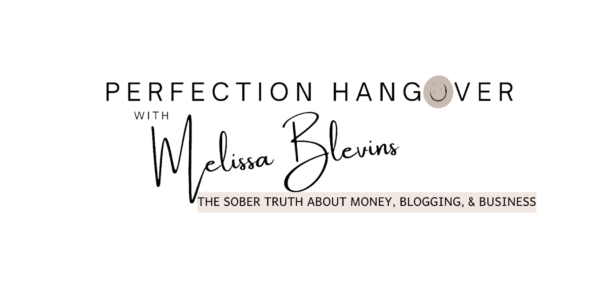This post may contain affiliate links. Click here to read my full disclosure.
We all know that cross selling in banking is vital to bank growth, but there’s a right way and a wrong way to do it. What would happen if banks put clients first? Most banks are failing miserably in the client service area. Let me tell you a little bit about working for a bank on the retail side (that is, deposit accounts and loans).
I spent nearly 10 years as a teller, personal banker, and small business banker, and every single bank has the same basic mission. They want their clients to sign up for as many products as possible to increase revenue and loyalty. But what you might not know is that the more products and services you have with your bank, the more of a pain it is to leave!
Cross Selling in Banking: A Typical Scenario
A banker sits down with her new prospective client (you), and after asking for permission to ask several questions to uncover financial needs, she determines you need:
- A checking account
- Your main savings account (emergency fund)
- Minor savings accounts for all of the kids
- Two debit cards (one for you and your spouse)
- A CD, or certificate of deposit, so you can earn more interest on your money
- To refinance your auto loans so that you can save money on the interest rate
- Online Banking
- Bill Pay
Your banker might even try to set you up an appointment with their wealth advisor or mortgage loan officer (even if you aren’t quite at that stage of your life yet). Cross selling in banking is one of her main goals (and the bank’s main goal).
The problem is, bankers have been trained to up-sell you whether or not you actually need the products. Most banks pay a commission and bonuses based on products sold, cross-sell ratio, and other factors. They train how to sell me this pen.
So banks set goals for their employees and teach them to reverse-engineer those goals for success. They set up conference calls with branch managers (sometimes every single day) to check the status of each area (checking, savings, credit cards, loans) and cross-check each employee’s activities (tellers, bankers, and management). If it sounds exhausting, that’s because it was.
Conference calls are such a time-waster! What upper-management didn’t realize (or didn’t care to realize) is that by spending all of that time (tying up branch managers) on conference calls, they’re taking the leaders away from the bank. They’re putting them behind closed doors with blinds closed, not to be disturbed, while real people are walking into the bank needing help.
Bankers are needing guidance on certain issues, and they can’t disturb their managers for help, so they have to dial a 1-800 number for assistance, giving the client a negative service experience.
Real connections and client service are becoming a thing of the past.
Most banks offer incentives to bankers and tellers based on how many credit card applications they can get approved, how many checking accounts they can open, etc. I think it’s great to reward employees for doing an amazing job, but instead of offering incentives for upselling and cross selling in banking, why don’t they just set the base salary a bit higher and maybe start rewarding for client service excellence. If someone is slacking at their job, coaching and discipline can take care of that. If you’re truly doing everything you can to help clients (including making needs-based recommendations), the bank’s revenue will increase, as well as client (and employee) loyalty.
What would happen if banks put clients first?
Some banks are open on Sundays now. In my banking career days, this was unheard of. It simply wasn’t cost-effective to staff on Sundays.
I absolutely believe every single bank should be doing a client needs assessment, where they visit with the client to determine what stage of life they’re in, help them create a basic budget, and make appropriate recommendations (not to meet sales goals but to meet the needs of the client).
So a client walks into a bank (sounds like a bad joke, right? lol), and the manager is available (because she’s not on a time-wasting conference call). She walks out of her office and greets the client by name while shaking his hand and offering him a cup of coffee from the bank’s coffee bar.
Maybe there’s a special sitting area where a handful of gentlemen meet once a week to sip coffee and talk about the weather, the economy, or just life. She introduces the client to the men and chats for a moment before she’s called away by her personal banker. His client sold his brand new car to buy a “beater” (just to get around town and to and from work) for $4,000. But he spent most of his savings to get out of his upside-down car loan, and the bank is saying that his “beater” is just too old and has too many miles to get an auto loan.
He also doesn’t have good enough credit to get an unsecured loan. Most banks require outstanding credit to obtain an unsecured loan because it’s the riskiest type of loan (with no collateral required). The client does have just enough in his savings account to pay for the car, but it would wipe out his savings completely. Because the manager is available to coach and to help her banker, she explains to them that they can do a savings-secured loan to purchase the car.
What the bank will do is put a hold on the client’s savings account funds of $4,000 and give him a loan (using his savings as collateral). The interest rate is just 2% more than his APY earned, so (in this scenario, as an example), he’s only going to pay 3.5% APR for the loan, and his savings remains in place, but he just can’t access the funds on hold until the loan is paid off.
Do you see how the bank was able to serve the client by cross selling a product based on the client’s individual needs, and it wasn’t motivated by a sales competition or monthly goals? I can almost guarantee that the client feels valued and will remain a loyal customer. He only needed a $4,000 loan, but he might just be the guy who ends up starting his own business and needing so much more from the bank (business checking, savings, merchant services, employee accounts, etc). Cross-selling in banking can be effective if done right, and I hope upper-level management takes note that they’re doing it wrong.
It’s time to bring client service back to banking.

Life is a collection of memories and experiences. There are ups and downs. I am so grateful for God’s grace and am on the journey to a renewed spirit, free of perfectionism. Perfection Hangover offers the sober truth – no filter.




Pingback: 81 Legit Ways to Make Money on the Side in 2020